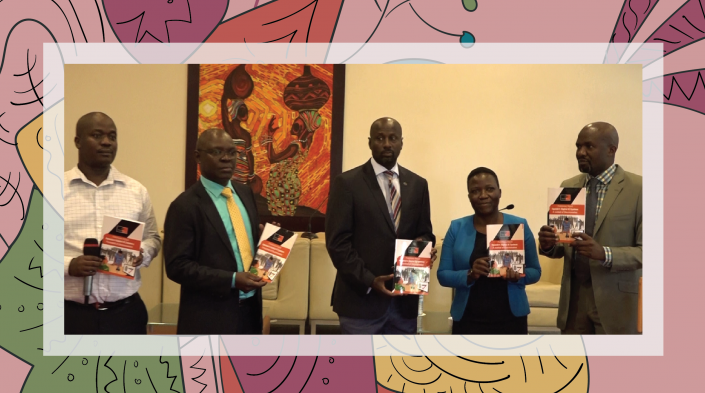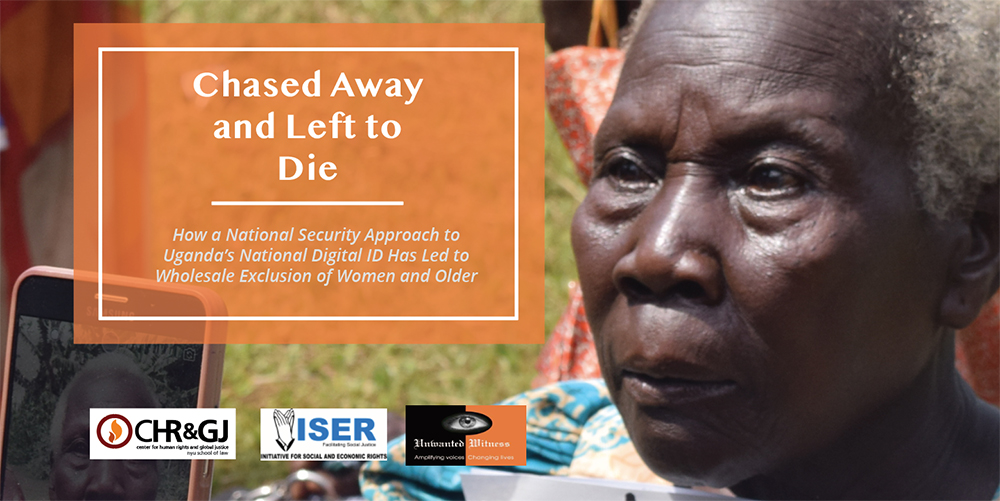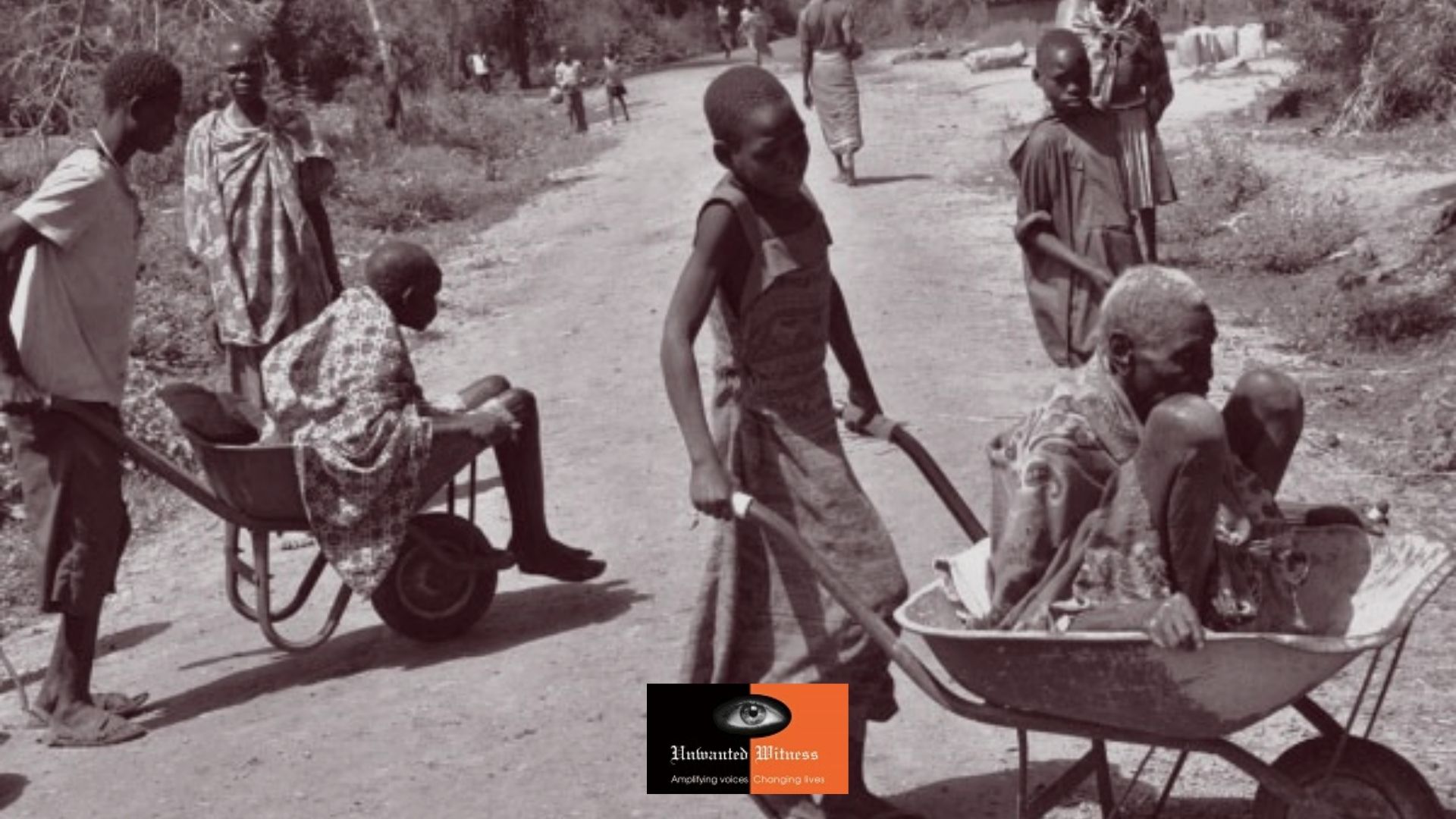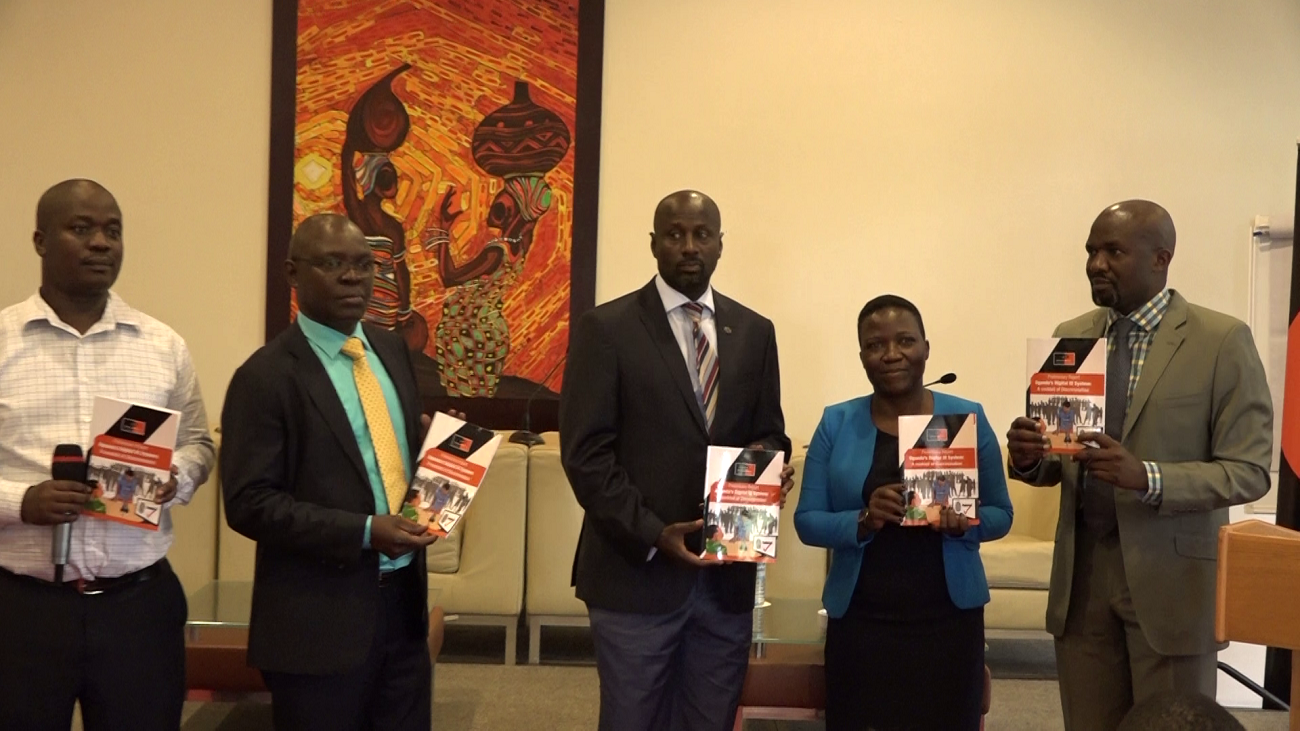Speaker Kadaga Commends Unwanted Witness Over The National Id Research

By Florence Nabukeera
On 2nd March 2020, a six-member delegation from Unwanted Witness constituting two aggrieved citizens, excluded by the National ID system met the Speaker of Parliament, Rt. Hon. Rebecca Kadaga at parliament. The purpose of the visit was to share Unwanted Witness’s preliminary report entitled Uganda’s Digital ID System: A Cocktail of Discrimination and discuss the related National ID system policy.
Speaker of Parliament, Rt. Rebecca Kadaga said that Parliament is to use the information entailed in the Unwanted Witness study report on National Identity Card as part of the evidence to hold the relevant authorities, including Ministry of Internal Affairs accountable over the existing challenges in the National ID system to address the numerous human rights violations.
Kadaga categorically stated that there is nothing in Registration of Persons Act 2015 that makes a National ID as the compulsory document for citizens to access essential services.
“There is a need to stick to the rationale of the National ID other than oppressing the citizens especially those who don’t own it. Why should a citizen be denied a service because of lack of National ID?” Kadaga wondered.
Testimony
Name: Hadijah Mwanje
Issue: Sim card replacement
| I lost my National ID and phone on 29th January 2020. I went to telecom companies to replace my sim cards. I was told to first go to NIRA to get a confirmation letter because I did not have a national ID. I paid 1000 shillings for the confirmation letter and 2500 shillings as bank charges. Unfortunately, this confirmation letter is not open, this means I had to get two letters for the two Sim cards I possess. It also applies when one wants to access a public building or getting a job, a person has to go and get a confirmation letter addressed to a particular office /institution. |
Kadaga expressed dismay over what she termed as “unnecessary” charges by NIRA, which she said should be stopped to allow the citizens acquire National IDs without digging deeper into their pockets.
Mwanje’s story clearly demonstrates the exploitative practices by NIRA. In principle, the confirmation letter should have been left open, implying that it can be used for different purposes depending on specific demand at a time, made easier through photocopying which was not the case for Mwanje. Worse still, citizens pay 52,000 shillings for the National ID replacement. This does not mean that they receive it instantly. With documented delays, one has to move forth and back over a long period of time while missing out on critical services and key life determinants like employment, health, finance etc. It is categorically clear that this is resource-draining and time-consuming.
Unwanted Witness’s Chief Executive Officer, Dorothy Mukasa expressed a need to streamline the National ID system by formulating a law that will guide the uses of the National ID to avoid abuses of fundamental human rights.
The National ID at inception, was objected to serve as a document for identification of Ugandan Citizens across boarders and within to aid government to plan and reduce crime rates in the country, however the initial purpose has totally shifted to denial of services, underplaying the government’s mandate or obligations under the international law to uphold social, economic and political rights.




